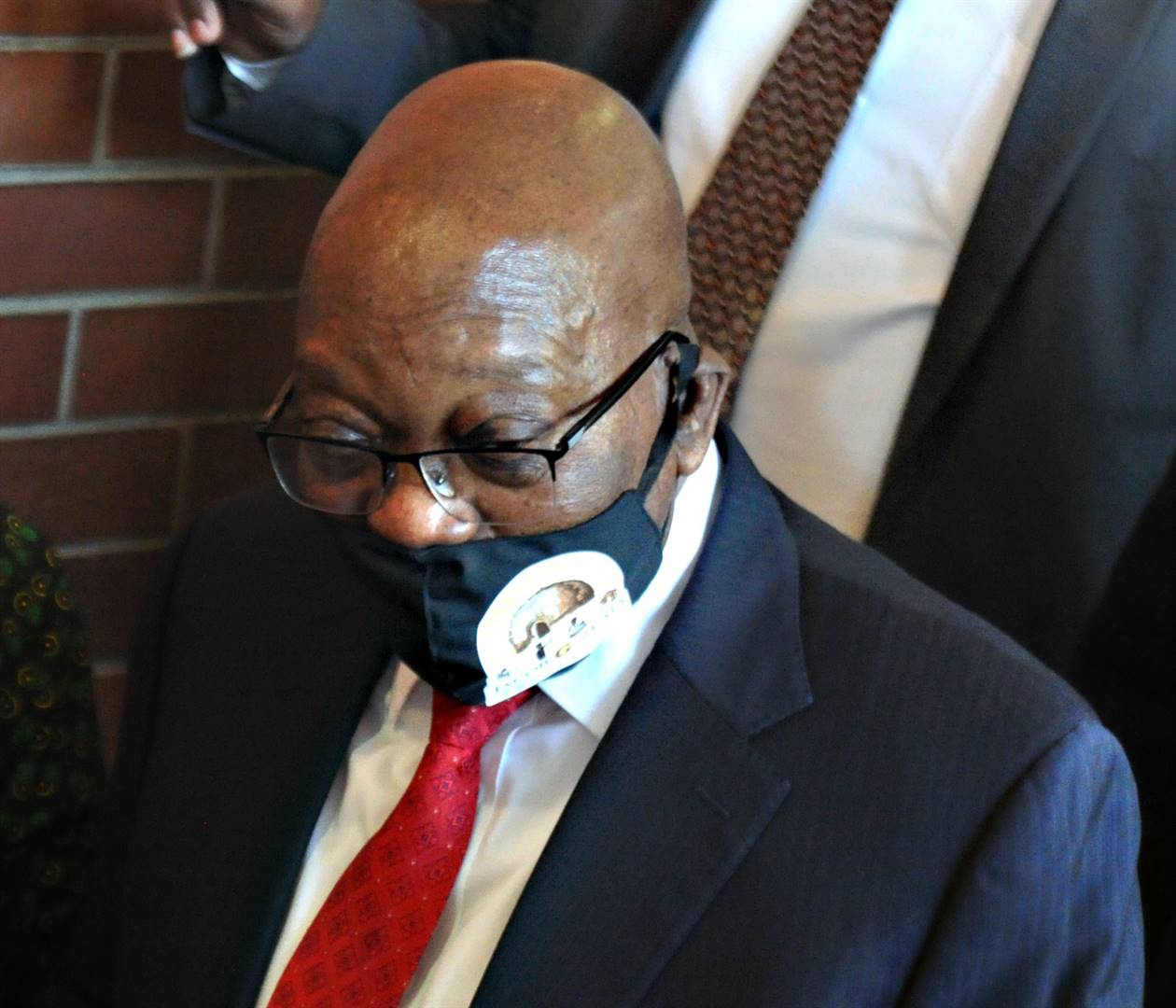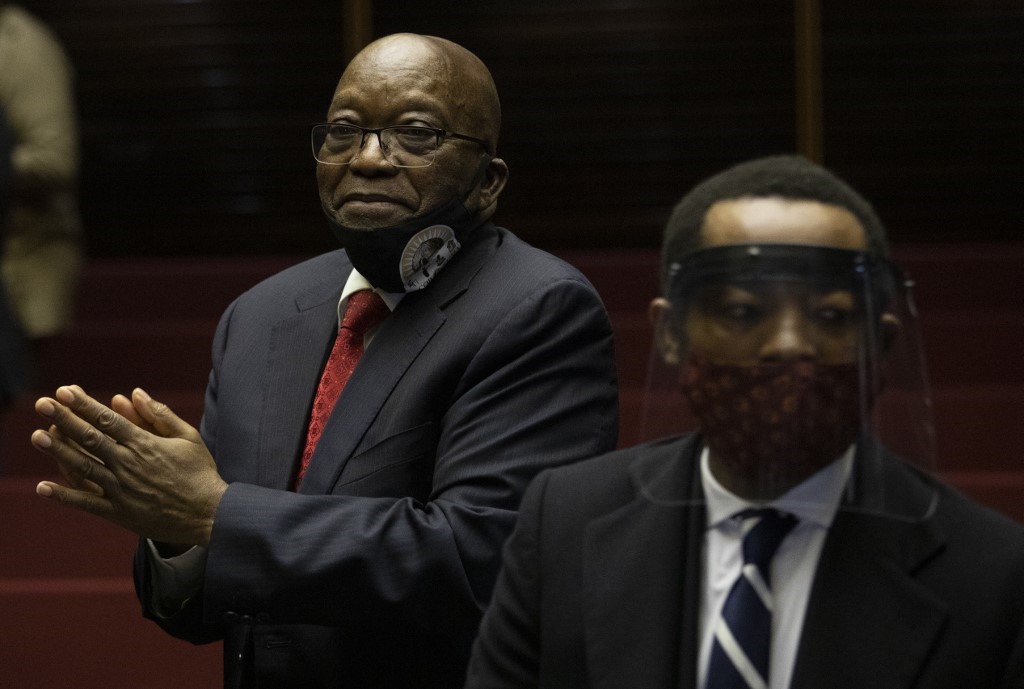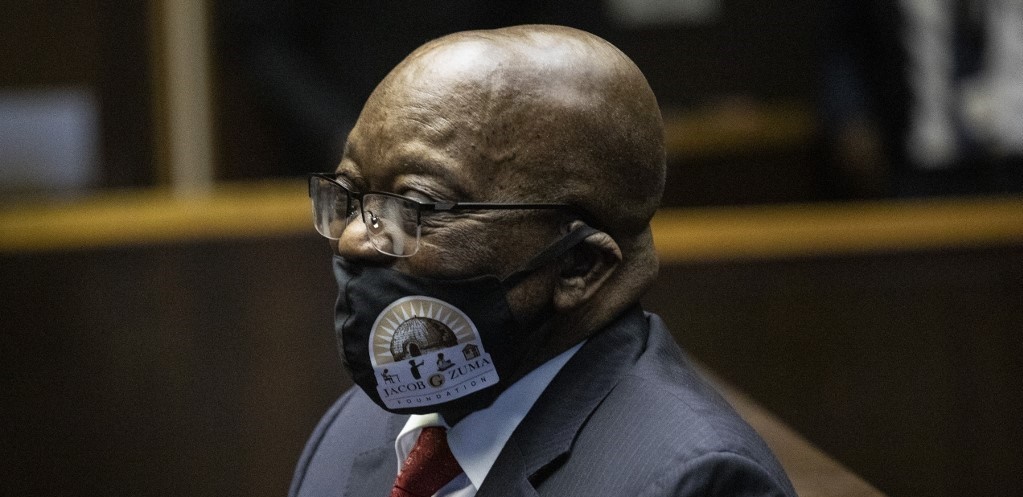- Experts say courts will have to become creative with international witnesses during the Covid-19 pandemic.
- They say High Courts have a continuous roll, meaning the case could be heard at the end of the year.
- Thales challenging its racketeering charges was normal before trial commenced, say experts.
The corruption trial of former president Jacob Zuma endured yet another postponement this week, but legal experts believe we could be one small step closer to the trial’s commencement.
While Judge Kate Pillay resolved to postpone the case until September for outstanding matters to be resolved, much more was revealed about it during Tuesday’s proceedings in the Pietermaritzburg High Court.
“So, obviously there’s been various delays, there were some type of legal submissions and disputes as to who’s been the cause of the delay, but at the end of the day they decided that they would … let this matter proceed because it’s been long-standing, and the ex-president has always said he wants his day in court,” legal expert advocate Mannie Witz said.
He added the appearance later this year would iron out all outstanding matters before all parties went to trial.
“So, in September when they appear, all the preliminary issues, all interlocutory issues, the particulars and the full indictment need to be resolved so the accused has the full indictment and all the charges against him.
“At that time, the State will be in a position to tell the judge, we are ready to proceed, and the judge will then fix a trial date.”
We have to be creative for international witnesses
On Tuesday, it was revealed in court there could be a challenge with international witnesses due to Covid-19.
Witz concurred with this.
“The availability of some international witnesses will rely on the situation with the world pandemic. We can only hope the pandemic starts easing up, which will make travel available, especially for people from overseas.”
Weighing in on the case, the executive director of the Council for the Advancement of the South African Constitution, Lawson Naidoo, differed in opinion, saying the courts could get creative to circumvent the pandemic.
“I think we also need to be creative and you know it’s not unheard of for a court to receive evidence from witnesses outside of the country through some sort of video link, making sure that facilities on the other side are what the court wants it to be”
He said that while it was a challenge, it was not impossible.
“So yes, I do think there are challenges, but I don’t think they are insurmountable. There are certainly challenges, but they can be overcome. And perhaps by the time the trial gets under way, international travel could be permitted and witnesses would be able to attend court.”
Thales challenges racketeering charges
Advocate Barry Roux for Thales revealed it would be challenging the racketeering charges “and whether it was competently instituted”.
Its application was “99% ready”, the court heard.
Legal expert Ulrich Roux said Thales sought to show there was not enough evidence to prove a racketeering charge in court.
“They will have time now until the actual trial takes place in order to challenge that racketeering charge. The State has until the day the trial starts to finalise their charge sheet.
“So, if they do review the evidence and they do find a racketeering charge might not be proven in court against Thales, then they could withdraw the charge prior to the trial commencing.”
Witz said a proper pattern of racketeering was difficult to show.
“Normally, get the bottom feeders and not the people at the top, and it’s quite a difficult charge to prove. You have to show a pattern, you have to show the parties that were involved, you have to show where there was a pattern of racketeering and what the racketeering was.”



Former president Jacob Zuma after appearing in the Pietermaritzburg High Court.



Former South African President Jacob Zuma appears at the Pietermaritzburg High Court.



Former South African President Jacob Zuma appears at the Pietermaritzburg High Court.
Will the case begin in 2020 or 2021?
Witz said High Court cases have a continuous roll, meaning they would continue until all courts go into recess.
“So, if you start on a particular day, the matter will continue through till the end of the court term or until when the court decides that they’re going to take the recess, depending on any remands or any postponements for any reason whatsoever.
“It’s not like your local magistrate’s, district, or regional courts where you’ve got many other matters … and have to wait for bail applications, first appearances and remands and you can only get started after tea or midday onwards and there are only so many hours in a court day.”
READ | Zuma corruption trial politically orchestrated – but not by Ramaphosa, says Carl Niehaus
He added the trial would proceed once a date was fixed in the September appearance.
“The State should be in a position to at least start leading certain aspects of the evidence from the local witnesses if they don’t have international ones, and hopefully this matter will get started and reach some type of closure eventually.”
State interaction with Judge President Achmet Jappie
Witz said he was aware of media reports involving Judge President Achmat Jappie and Billy Downer and felt there was no foul play.
The defence has not taken kindly to correspondence over potential dates to start the trial, or updates to the indictment.
“I think both of them are beyond reproach, but I think the defence, fairly to their credit, is entitled to raise it.”
He added interactions with the judge president should not include the merits of the case.
“Normally, when there is any interaction, as long as you’re not discussing the merits of a trial or anything relating to the trial, it is fine. However, it’s better that your opponent is present and aware of your discussion.”
Witz said he understood the discussion to be around arranging suitable dates or “arranging certain aspects in regard to particulars disclosed in the indictment”.
“What should have happened is the defence should have been invited, but there is nothing untoward and there’s nothing actually in any way, which taint or affect the actual fairness of the trial.”
He added going forward, the State had to be mindful and engage with the defence when speaking to the judge president.

